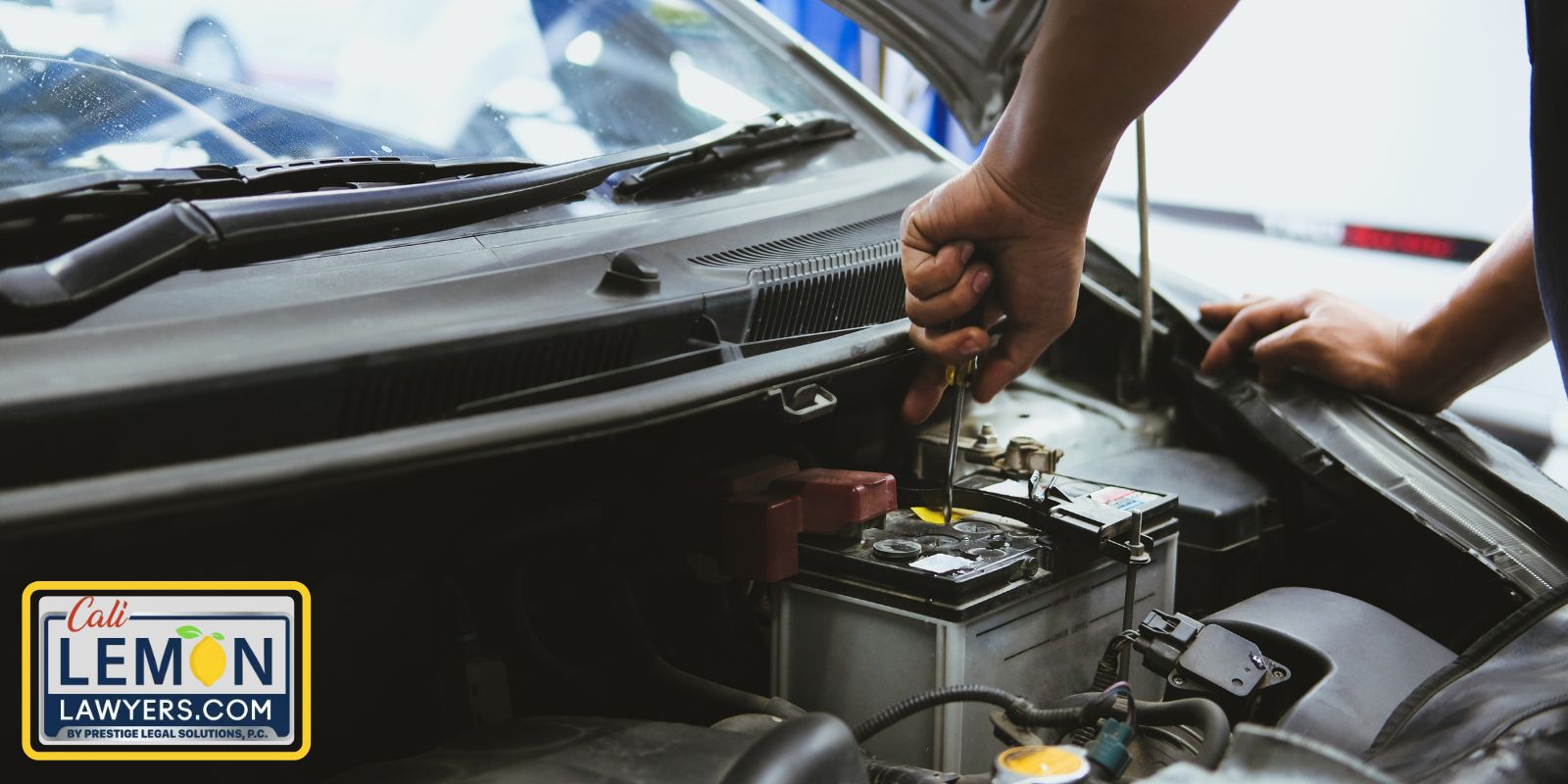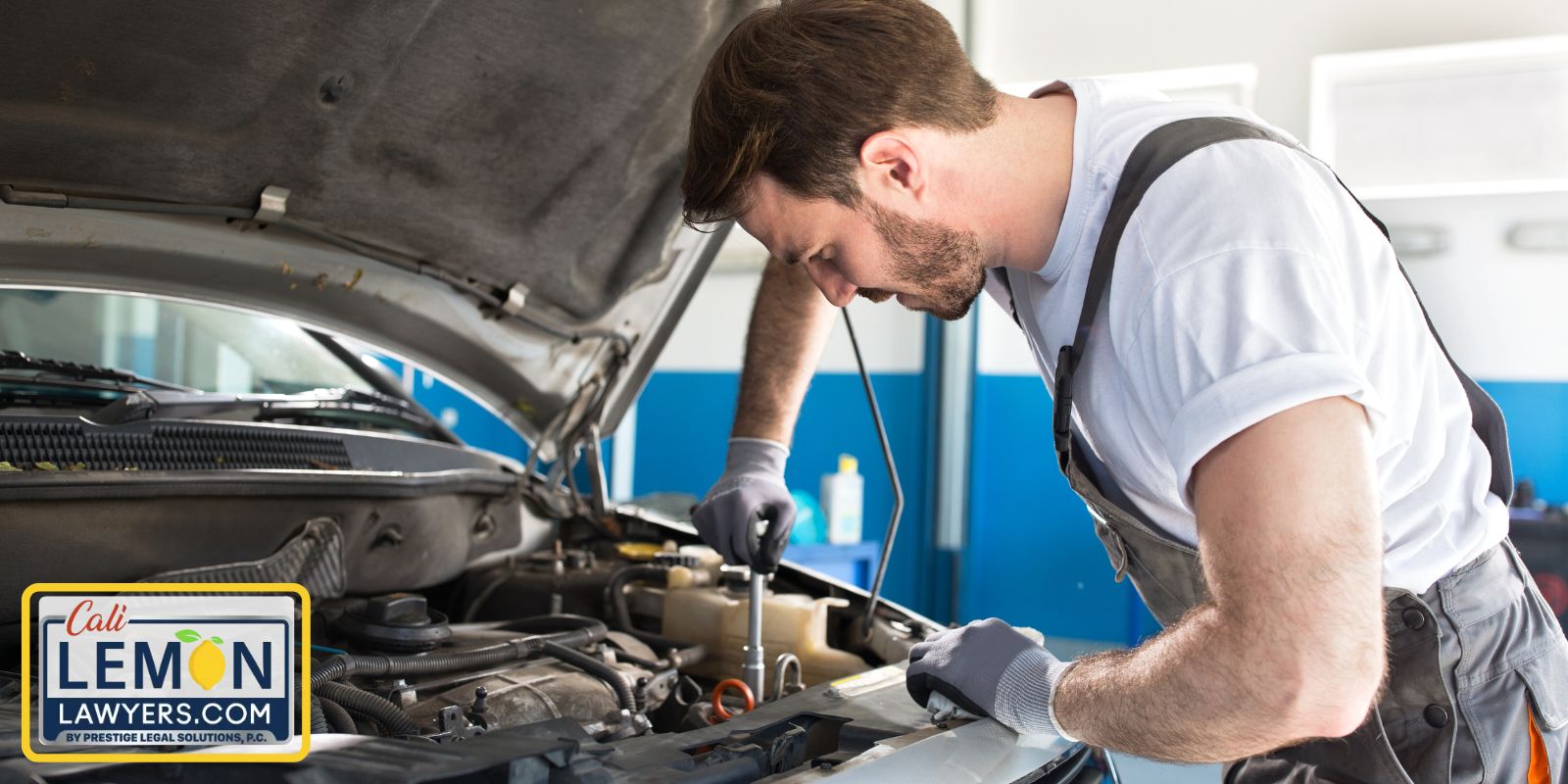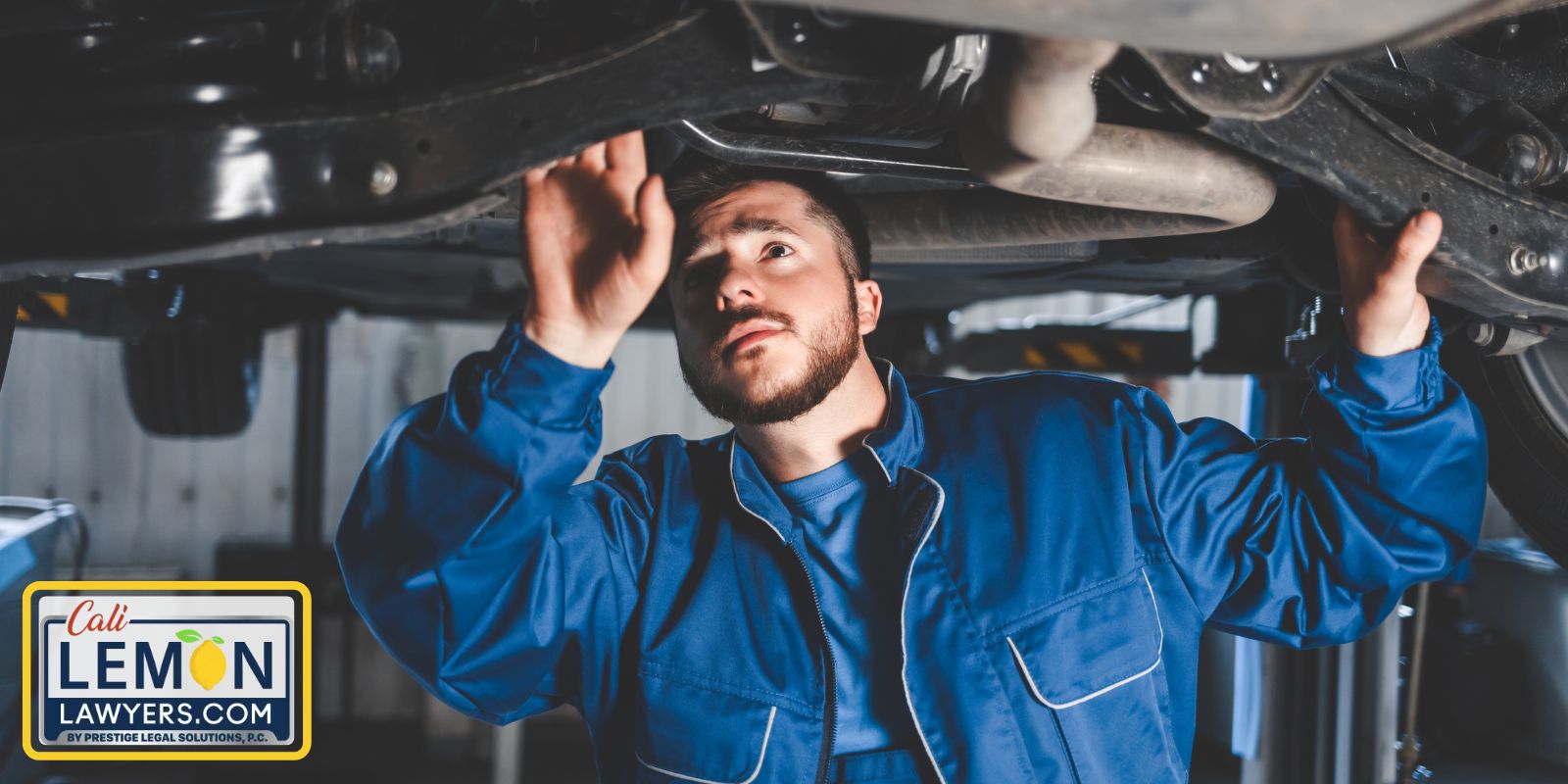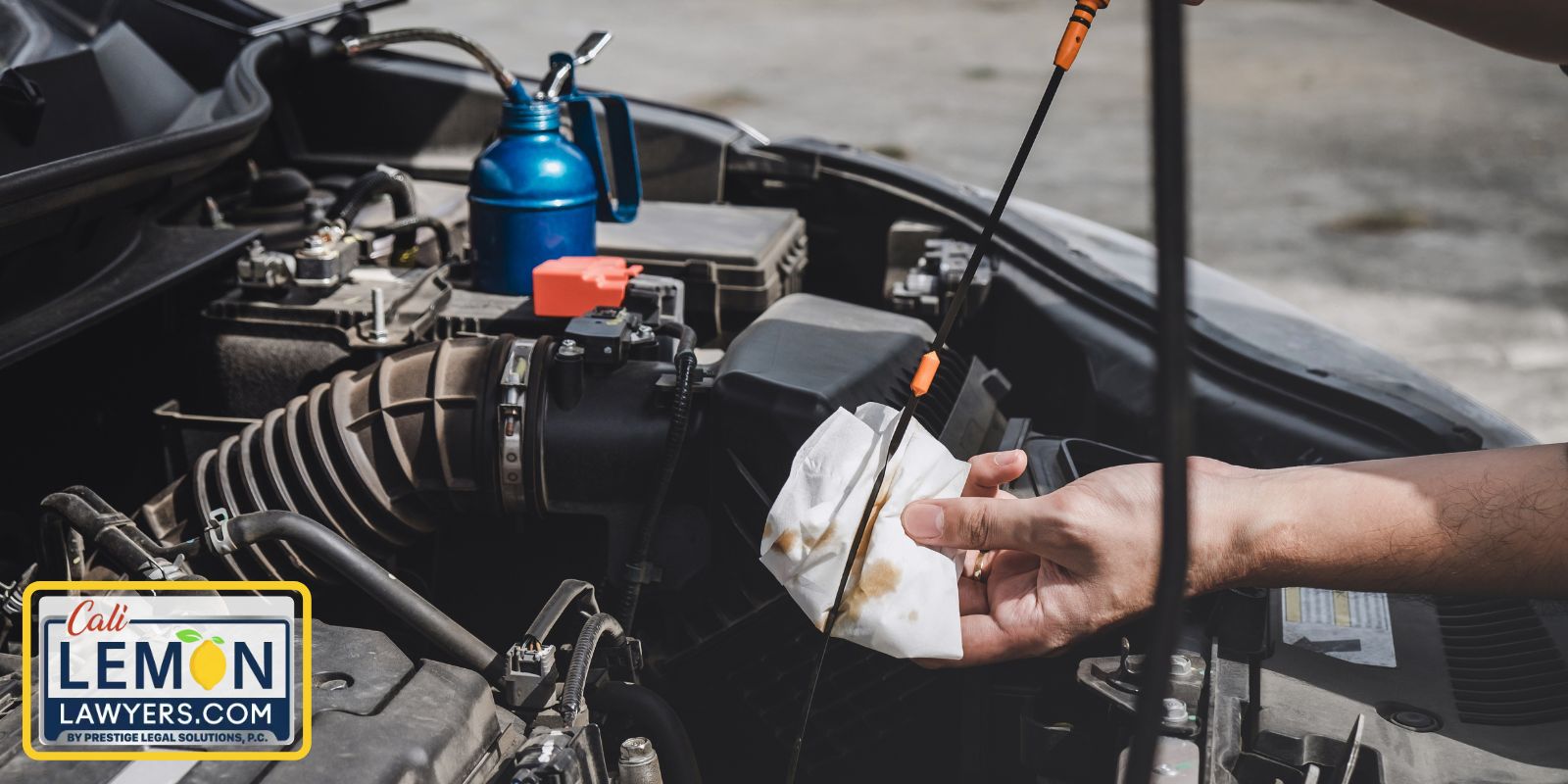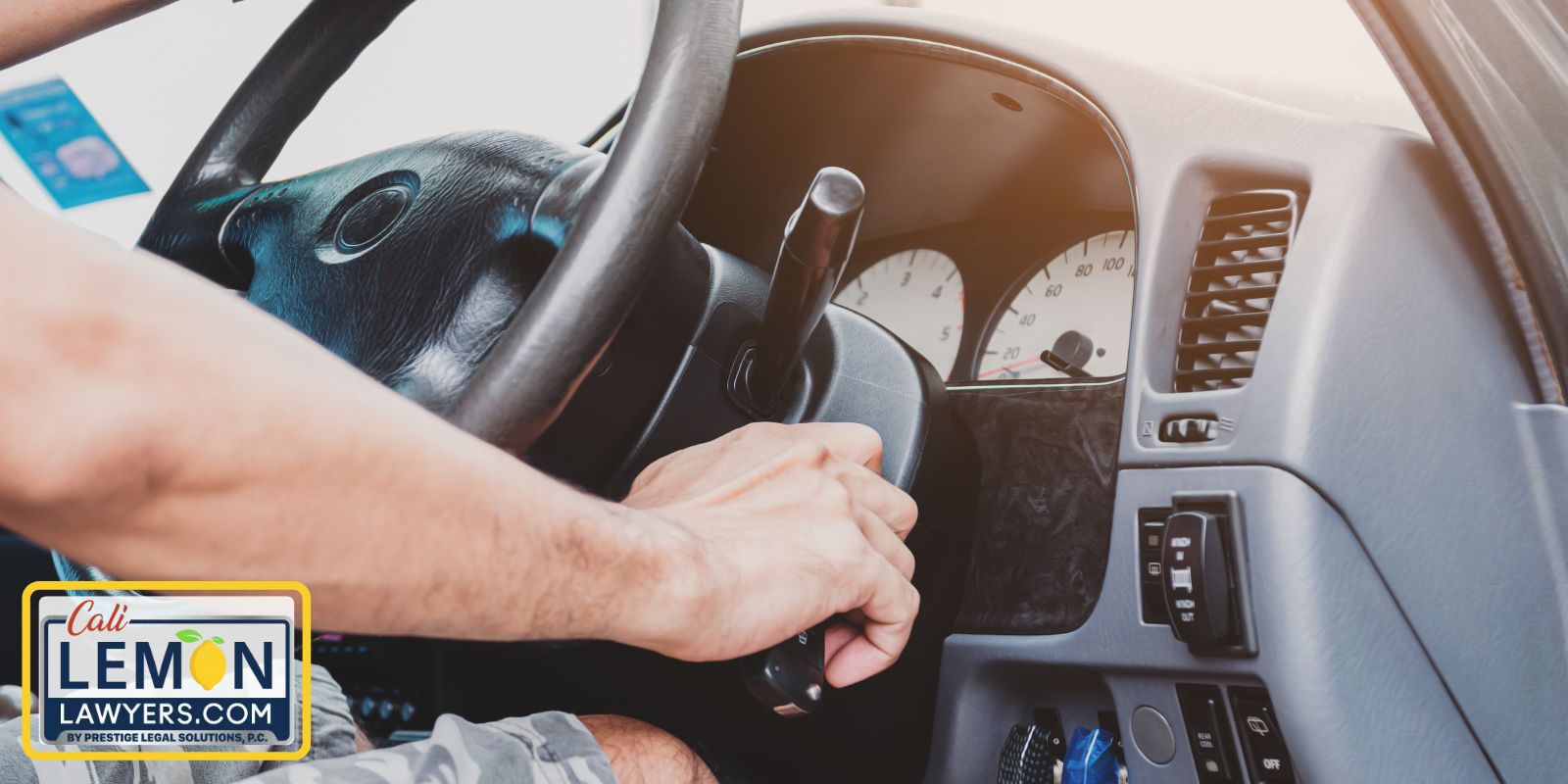
Car Completely Dead? Causes & Solutions
Is your car completely dead? A completely dead car is no fun for anyone, especially when you’re trying to figure out the cause so you can fix it. In this article we’ll go through all of the most common reasons why your car might be dead along with the best possible solutions for each.
If your car is completely dead while under warranty, you may be entitled to compensation. Contact Cali Lemon Lawyers for a free case evaluation today. Leverage in-depth knowledge of regulations to ensure your rights are protected and you receive fair treatment.
8 Common Causes & Solutions for A Completely Dead Car
1. Car Battery Problems
A dead car battery is one of the most common causes of a completely dead car.
Here is a guide on how to check for a dead car battery:
- Visual Inspection: Look for damage or corrosion on the car’s battery terminals and check for a bloated or leaking car battery case.
- Interior Lights & Accessories: Test if the interior lights, headlights, and accessories like the radio are working properly. Dim or non-working lights could indicate a dead or weak battery and necessitate a new battery.
- Multimeter Test: Use a multimeter to measure the car battery’s voltage. A healthy car battery should read around 12.6 volts when the car is off. Significantly lower readings may indicate car battery failure.
- Car’s Starting Reaction: Pay attention to how the car reacts when starting. Slow cranking or failure to start could be signs of car battery problems.
- Professional Battery Test: Consider getting a free car battery test at an auto parts store or garage. They use specialized equipment to assess your car battery’s energy capacity.
Potential solutions:
- Jump Start: Use another car battery or a (second car) booster car to jump start your car. Note that jump starting is a temporary solution and may not work with a faulty or dead car battery.
- Charge the Battery: If your car battery is drained but undamaged, try charging the battery using a car battery charger.
- Clean Terminals: Corroded terminals can hinder car battery power supply. Cleaning them might restore functionality.
- Check Electrolyte Level: For a traditional lead acid battery, refill low electrolyte levels with distilled water if applicable. Modern sealed car batteries typically don’t require this maintenance.
- Replace the Battery: If your car battery is dead, damaged, or old, consider replacing it with a new battery.
- Check the Alternator: If your battery’s charge struggle to hold but your car battery appears fine, the car’s alternator may be the issue. Consult a mechanic to assess and potentially replace the alternator.
2. Engine Failure
This is the most serious issue and can occur due to various reasons such as overheating, lack of oil, or general wear and tear.
Potential solutions:
- Stop Driving Immediately: If the car’s engine is showing signs of severe distress, continuing to drive could lead to even greater damage. Find a safe place to pull over as soon as possible and have the vehicle towed to a reliable mechanic or auto repair shop.
- Repair or Replace: Depending on the severity of the problem, it may be possible to repair the engine. However, in some cases, a complete engine replacement may be necessary. Discuss your options with the mechanic to understand the cost implications and whether it makes sense given the value of your vehicle.
3. Starter Motor Issues
If the starter motor is faulty, it won’t be able to crank the engine, and your car won’t start.
Potential solutions:
- Check the Starter Relay: The starter relay is a small electrical component that sends a large electrical current to the starter from the car battery when you turn the key. If it’s malfunctioning, it could be preventing the starter motor from receiving enough electricity to work properly.
- Try the “Tap” Trick: In some cases, gently tapping the starter motor with a tool like a hammer can help. This can free a stuck gear within the starter. But be careful not to hit it too hard, or you could cause damage.
- Check for Loose Connections: Ensure that the electrical connections to the starter are tight and free of corrosion.
4. Fuel System Problems
This could include a malfunctioning fuel pump, a clogged fuel filter, or a problem with the injectors, any of which could prevent the engine from receiving the fuel it needs to run.
Potential solutions:
- Evaluate your fuel filter: A clogged fuel filter, due to impurities, impedes fuel flow to the engine and should be replaced.
- Assess the fuel pump: A failing pump, identifiable by symptoms like engine sputtering at high speeds, power loss during acceleration, stalling, or a whining noise, may not provide adequate fuel.
- Check fuel injectors: Clogged or improperly functioning injectors can be cleaned or replaced to rectify any issues.
- Inspect fuel lines: Ensure fuel lines are not blocked or leaking, and are in good condition.
- Use Diagnostic Tools: A diagnostic scan tool, beneficial for identifying fuel system issues, can read trouble codes pinpointing the problem.
5. Ignition System Problems
This might involve a faulty ignition switch, ignition coil, distributor cap, rotor, or spark plugs.
Potential solutions:
- Assess spark plugs: Replacement might be necessary if they’re worn or fouled, causing ignition issues.
- Check ignition coils/coil packs: These generate the voltage for spark plugs. If malfunctioning, they might not supply adequate voltage, causing weak or no spark.
- Inspect the distributor cap and rotor: If present in your car, look for cracks, corrosion, or wear. Faulty components can disrupt electricity distribution to spark plugs.
- Evaluate ignition wires: These carry electricity from coils to spark plugs. Damage can disrupt the ignition system, so check for cracks, wear, or other issues.
- Test the ignition switch: A faulty switch might not provide enough power to the ignition system for the car to start.
- Scan for trouble codes: A car diagnostic scanner can identify trouble codes, helping pinpoint the problem source.
6. Timing Belt Failure
A broken timing belt can cause breakdowns as it synchronizes crankshaft and camshaft rotations.
Possible Solutions:
- Stop driving: Avoid engine damage, especially in interference design engines.
- Replace the timing belt: If failed or close to failure, replace the belt. This complex task should be done by a professional.
7. Transmission Failure
Transmission issues can prevent car movement despite a running engine.
Possible Solutions:
- Check transmission fluid: Fill up low or replace dirty/burnt fluid.
- Use a diagnostic tool: Scan for error codes indicating the issue.
- Repair or replace transmission: Depending on damage severity, repair or replace the transmission and weigh costs against potentially replacing the vehicle.
8. Electrical System Issues
Problems in computer or electrical components can prevent car start-up.
Possible Solutions:
- Check the car battery: Inspect for damage, ensure clean, secure connections, and test voltage. Charge or replace with new battery, if needed.
- Inspect fuses and relays: A blown fuse or bad relay could be the issue. Refer to the owner’s manual for their locations.
- Check the alternator: If malfunctioning, it could cause electrical problems.
- Evaluate ground connections: Ensure clean, tight, corrosion-free connections.
- Use a diagnostic tool: Scan for trouble codes to identify the problem source.
Consulting a Professional
All of these problems can be tricky to diagnose and fix. If you can’t identify or fix the problem yourself, you should take your car to a mechanic. They’ll have the knowledge and tools to diagnose and repair the problem correctly.
10 Other Possible Causes of A Completely Dead Car
1. Security System Malfunction
Sometimes, a car’s anti-theft system can mistakenly prevent the car from starting. If you suspect this, try resetting the system according to the manufacturer’s instructions. If this doesn’t work, it may be necessary to consult a professional to diagnose and reset the system.
2. Clutch Issues
For manual cars, a faulty clutch safety switch can prevent the car from starting. You can test this by trying to start the car in neutral without engaging the clutch. If it starts, it’s likely the switch. Replacement typically requires a qualified mechanic.
3. Neutral Safety Switch Malfunction
In an automatic vehicle, if the neutral safety switch (which allows the car to start only in park or neutral) fails, the car won’t start or might not start. You could try to clean and lubricate the switch, but replacement is often necessary and should be carried out by a professional.
4. Fuses and Relays
A blown fuse or a bad relay can interrupt power to vital internal components, preventing the car from starting. Inspect the fuses and relays associated with the ignition system for any visible damage, and replace any that are faulty. A vehicle service manual can help you locate these.
5. Camshaft or Crankshaft Sensor Failure
These sensors provide important data to the car’s computer system. If either fails, the car’s engine may not start or may run poorly. Use an OBD2 scanner to verify the problem. If a sensor is at fault, a professional should replace it.
6. Mass Airflow Sensor Failure
This sensor measures the amount of air entering the engine to determine how much fuel to deliver. If it’s faulty, the engine may not run properly. Cleaning the sensor with a specialized cleaner can sometimes solve the problem. However, in more severe cases, you might need to replace the sensor.
7. Problems with the ECU (Engine Control Unit)
The ECU is the car’s “brain.” If it has problems, it might not manage engine functions correctly. Resetting or replacing the ECU is a complex task and is best left to professionals.
8. Fuel Quality Issues
Sometimes, contaminated or poor-quality fuel can cause engine problems. If you suspect this, try using a different brand or grade of fuel. If the problem persists, a fuel system cleaner may help, but the fuel tank and system may need professional cleaning or even repair.
9. Catalytic Converter Failure
While a failed catalytic converter typically doesn’t prevent the car from starting, it can cause the engine to run very poorly or not at all in some cases. An OBD2 scanner can help confirm the issue, but replacement should be done by a professional.
10. Vacuum Leaks
A leak in the vacuum system can affect engine performance and may prevent the car engine from running. Listen for a hissing sound while the engine is running; this is a common symptom. DIY methods include the carb cleaner test or a smoke test, but professional diagnosis and repair are often required.
Seeking Compensation for a Completely Dead Car
Types of Compensation for Completely Dead Vehicles
When your vehicle becomes completely dead and qualifies as a “lemon” under California’s Lemon Law, you may be entitled to specific forms of compensation.
Refund: This typically includes the down payment, monthly payments, and the payoff of the loan balance. It’s important to note that the manufacturer may deduct a usage fee based on the mileage on your car before it first went in for repair.
Replacement Vehicle: Alternatively, you may choose to receive a replacement vehicle. This would be a similar model to the defective one, and of the same value.
Cash Compensation: You might receive cash compensation, including reimbursement for repair costs, towing charges, rental car costs, and any other related out-of-pocket expenses incurred due to your defective vehicle.
Inconvenience and Other Damages: Compensation could be given for other damages like personal inconvenience, emotional distress, and even punitive damages if the manufacturer’s conduct is found to be particularly bad.
Successful Cases by Cali Lemon Lawyers
Cali Lemon Lawyers have helped numerous clients secure favorable outcomes in their Lemon Law claims. For instance, in one case, a client with a car that suffered multiple engine failures was provided with a full refund of the purchase price. In another case, a client whose vehicle had recurring electrical system problems was given a brand new replacement vehicle of the same model and make. There have also been cases where our clients were awarded significant cash settlements to compensate for repair costs and other related expenses.
Legal Rights under Lemon Laws
Lemon laws in the US offer remedies for consumers with cars that repeatedly fail to meet quality and performance standards. These laws protect against significant defects within a certain period post-purchase and compel manufacturers to honor their warranties. They aim to compensate for defective products not fixed after several attempts.
Lemon Laws Across States and Specifics in California
In California, these laws apply to new and used vehicles sold or leased with a warranty, including passenger vehicles, trucks, SUVs, certain motorhome components, and dealer-owned and demonstrator vehicles. If a warranted vehicle has continuous, unfixable defects, the manufacturer must replace the vehicle or refund the purchase price.
Criteria for a “Lemon” and Legal Remedies
A “lemon” car has a major warranty-covered defect that remains after multiple repair attempts, usually a serious safety defect repaired twice or a non-safety defect fixed four times, or if the car is out of service for over 30 days within the first 18 months or 18,000 miles. If these conditions are met, a replacement or refund is due. Legal recourse is usually through courts, although many manufacturers offer arbitration programs.
Lemon Law Claims and Dead Cars
Filing a Lemon Law Claim for a Completely Dead Car
When your car becomes completely dead and meets the criteria under the Lemon Law, you can pursue a Lemon Law claim. The process involves a series of steps starting with documentation and ending with potential legal assistance.
Cali Lemon Lawyers play a crucial role in guiding you through the lemon law claim process in California. We assist in gathering and organizing necessary documentation, drafting the manufacturer notice, and representing clients during arbitration or litigation proceedings. With our specialized knowledge of the California Lemon Law, we provide invaluable guidance to navigate your process and ensure you receive the compensation you’re entitled to under the law. Our goal is to make the process less stressful and more successful for you.
Conclusion
Now that you’ve read through this article about what to do if your car is completely dead, you should know exactly what actions to take in each situation and all considerations to take into account.
There are various common signs, causes and solutions for your car being completely dead. Being able to identify these common signs is crucial in making sure you get your car back to operating condition and assuring that you are compensated for any problems that should not have occurred.
Although there are many ways to take it upon yourself to fix your car, consulting a professional mechanic will help guarantee that you are not making a mistake.
For expert advice and representation in lemon law and consumer protection, contact Cali Lemon Lawyers. Our experts will put your legal rights to use in the case of a completely dead car and provide the most favorable outcome for you.

